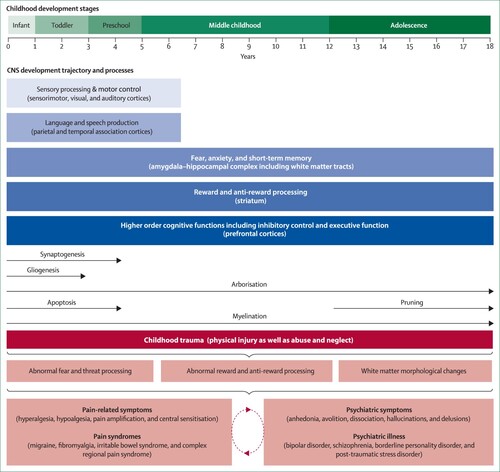Figures & data
Figure 1. Childhood trauma and its effects on biobehavioural systems implicated in pain and psychiatric disorders During development, distinct neurological systems mature at different rates, accompanied by changes in neurobiological mechanisms at the molecular or cellular level. Throughout the neurodevelopmental trajectory, and as a result of ongoing CNS maturation processes, children are arguably more vulnerable to the unfortunate and negative impact of childhood trauma, maltreatment in particular. In the developing CNS, maltreatment is hypothesised to interfere especially with systems that regulate threat detection, fear processing, reward and anti-reward mechanisms, and other fundamental neurological properties (e.g. white matter integrity). Over time, the impediment of normal neurodevelopmental process stemming from childhood trauma might commonly facilitate abnormal pain and somatosensory processing, psychiatric symptoms and illnesses, and complex comorbid states. (Adapted from Cay et al., Citation2022; Govindan et al., Citation2010 with kind permission of the authors).

Data availability statement
All data included in this manuscript is cited fully in the references section at the end.
